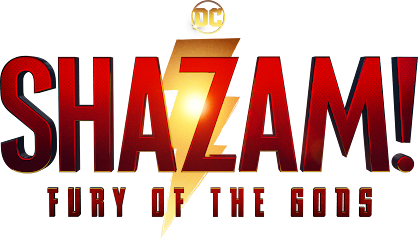How many modern franchises can truly get better with each subsequent installment? Not only that, how many can not only get better but make more money with each new film? The “John Wick” franchise isn’t just a critical darling that keeps getting more experimental with each iteration, but its truly taken the world by storm, and the latest chapter in the saga of this battered assassin, “John Wick: Chapter 4,” is its most grandiose yet.
After the events of “John Wick: Chapter 3 – Parabellum”, the titular Baba Yaga himself, played again by Keanu Reeves (“The Matrix,” “Speed”), finds himself on the run yet again from the High Table, this time lead by the Marquis Vincent Bisset de Gramont, played by Bill Skarsgård (“IT (2017),” “Barbarian”), who has hired Caine, played by Donnie Yen (“Ip Man,” “Rogue One”), a blind assassin and old friend of John’s to hunt him down. Meanwhile, John seeks refuge with his few remaining friends in an attempt to find a loophole out of the High Table’s employ.
There are many, many things about the “Wick” series that make them exceptional, especially amongst other action movies, and the two greatest elements are back in full force. The movie’s lore and mythology is as expansive as ever, with large ballrooms and fantastical arenas showing up for mere minutes of screen time before disappearing from the film. But it doesn’t feel like its been forgotten; rather, this is a world so grand that even the people who work for the people at the top can spend five minutes lecturing someone about honor whilst eating grapes in a ballroom.
More than most, these films really earn their budgets, not only trotting the globe to see the most beautiful locations and hotels, but also wild looking original sets as well. The nightclub run by Russian gangster Killa Harkan, played by Scott Adkins (“The Brothers Grimsby,” “Ip Man 4: The Finale”), is a particular highlight. It’s a feat of design, with sharp concrete walkways and staircases surrounding a booming nightclub full of lights and dancers further draped in man-made waterfalls. And that’s just one of the locations the film spends, at most, fifteen minutes in. It’s not just that these films are set in gorgeous locations, but they’re all lit like works of art. Whether its streaming strobe shooting through waterfalls or various shades of pink, red, and green lighting up a darkened hotel, to a nighttime fight in a roundabout lit by the headlights of cars driving by, it’s not just gorgeous locations, its gorgeous lighting for those gorgeous locations shot gorgeously by cinematographer Dan Laustsen (“Crimson Peak,” “The Shape of Water”).
Speaking of dancers, though, it truly does feel like Wick and his counterparts aren’t fighting, they’re dancing. A moment in Killa’s nightclub features Wick rolling and ducking and dodging an assailant with a knife as none of the dancers pay them any mind. It feels like they can ignore them because the choreography is so dancerly. It’s not an action film, it’s a brutality ballet. And it’s not just in the fighting itself, as Wick gets to play with so many varied types of weaponry and inventive techniques throughout. Caine’s way of fighting despite his lack of sight is a particularly genius take that is a highlight of the film.
Reeves continues to play Wick with his trademark level of bewildered calmness. He excels as an action star because we believe in his normalcy. Wick might be a killer, but he isn’t superhuman. He’s skilled sure, but its because he’s trained for this kind of stuff, not because he has any kind of powers, and Reeves continues to blend that into every moment of the film, from his line delivery to his looks of bewilderment.
Beyond the dancer and ballet influences, there’s also a layer of Charlie Chaplin-esque inventiveness on display that delivers some truly hysterical moments of black comedy. One moment late into the film is one of true hilarity that feels like something bordering on a Three Stooges bit, yet it feels right at home in the world Reeves and returning director Chad Stahelski (“John Wick,” “Day Shift”) have built over the last decade.
Despite the choreography, the comedic moments, the deep mythology, and the compelling performance from Reeves, the most impressive thing about “Chapter 4” is its length and pacing. At two-hours-and-forty-nine-minutes, it’s the longest film in the series by a wide margin, and yet it absolutely flies by, convincing you by the end it’s been barely ninety minutes. It’s a hat trick of a feat, and one that Stehelski and writers Shay Hatten (“John Wick: Chapter 3 – Parabellum,” “”) and Michael Finch (“Predators,” “Hitman: Agent 47”) have absolutely nailed. For a film filled with so much action and so much deep plot and lore details, it’s a wonder the film doesn’t feel like a slog. And yet not only does it not drag, it’s lively, with an energy movies half its length would kill for.
Somehow, four
movies in, the “John Wick” franchise not only hasn’t shown any signs of slowing
down, but has continued to get better and better, more inventive, and more
successful with each entry. For those who bemoan the films as being nothing
more than “just more action,” at this point, there’s no convincing you
otherwise. Because if you’re able to watch “John Wick: Chapter 4,” a nearly
three-hour-long orgiastic display of deep mythology, the best action in cinema
today, and a completely beloved lead performance, and see anything other than a
masterpiece, there’s simply no helping you. 5/5
















.png)
